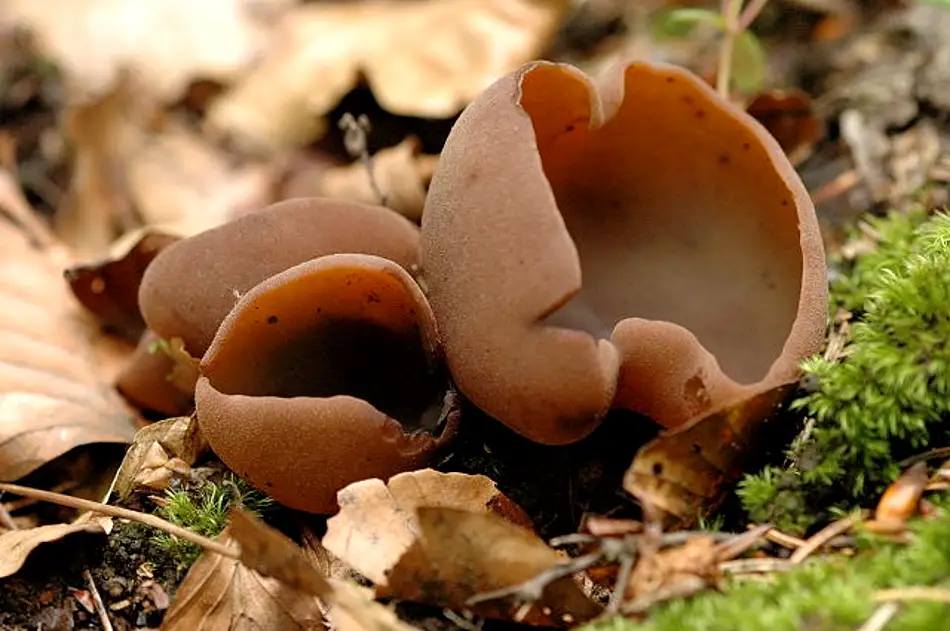Contents
CLASSIFICATION OF PEZIZA
Kingdom :- Mycota
Division :- Eumycota
Sub-division :- Ascomycotina
Class :- Discomycetes
Order :- Pezizales
Family :- Pezizaceae
Genus :- Peziza
Peziza are seen growing on dung and on decaying wood, in damp places in rainy season.
STUDY OF VEGETATIVE STRUCTURE
- It is a common saprophyte growing on rich humus soils and decaying woods. Sometimes it becomes coprophilous (Le. grows on dung).
- The mycelium is a complex system that penetrates the substratum.
- The mycelium is profusely branched, septate and the cells are multinucleate.
- The mycelium becomes visible only in the form of apothecial cups above the ground surface.
STUDY OF CONIDIA/CHLAMYDOSPORES
- The conidia are the asexual reproductive bodies. These are produced rarely.
- Conidia are hyaline, to lightly coloured and elliptical.
- lit some species, thick walled and intercalary chlamydospores are produced singly or in series on mycelium.
- On germination chlamydospore produces a new mycelium.
ASCOCARP, ASCI AND ASCOSPORES
- The ascocarp is an apothecium. It is fleshy, shortly stalked, about 5 cm in diameter with a bright red or bright grey lining.
- A vertical section of ascocarp shows a cup shaped structure made up of mycelium. It shows 3 regions-hymenium, hypothecium and excipulum.
- Hymenium consists of asci and paraphyses arranged vertically In organe-red-coloured palisade-like layer.
- The hypothectum consists of thin and lightly coloured hyphae that runs parallel to hymenium.
- Excipulum forms a basal large part of loosely interwoven hyphae of apothecium.
- The hymenium is encircled by densely interwoven hyphae forming the wall of the apothecium-the peridium.
- Ascus is elongated with a single row of eight ascospores, arranged obliquely.
- Each ascospore is uninucleate, hyaline or faintly coloured, elliptical, surface smooth or coarsely reticulate and ellipsoidal. It germinates to form new mycelium.
IDENTIFICATION
- KINGDOM – Mycota
- Chlorophyll absent
- Reserve food glycogen
- Cell wall of fungal cellulose.
- DIVISION – Eumycota
- A definite cell wall present.
- SUB-DIVISION:- Ascomycotina
- Mycelium septate.
- Spores borne endogenously in the ascus.
- Spores in definite numbers, in multiples of two, usually eight.
- CLASS :- Discomycetes
- Ascocarp, an apothecium.
- ORDER – Pezizales
- Apothecia fleshy or leathery.
- Apothecia usually not in stroma.
- FAMILY – Pezizaceae
- Apothecia cup-shaped or discoid.
- apothecia not differentiated into stipe and pileus.
- GENUS – Peziza
- Apothecium 1 to 5 cm in diameter and conspicuous.
- Vegetative mycelium penetrating the substratum.
- Ascospores not apiculate.
REFERENCES


Leave a Reply